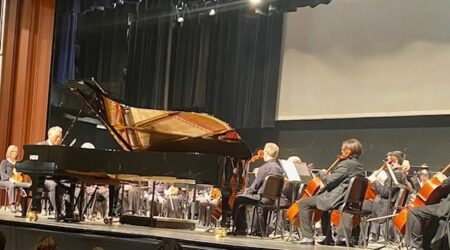Why We Resist
By Oleg Ivanov Recently published in English for the first time, Hans Fallada’s Every Man Dies Alone and Hans Keilson’s Comedy in a Minor Key were first released in East Germany and the Netherlands, respectively, in 1947. Among the first novels to deal with those nations’ Resistance movements, they are works of realism based on […]

By Oleg Ivanov
Recently published in English for the first time, Hans Fallada’s Every Man Dies Alone and Hans Keilson’s Comedy in a Minor Key were first released in East Germany and the Netherlands, respectively, in 1947. Among the first novels to deal with those nations’ Resistance movements, they are works of realism based on actual people and events turned to parables by the passage of time. Both focus on apolitical couples that commit small acts of independent resistance against the Nazi regime. By examining the way Fascism distorted the lives of average people, Fallada and Keilson show how some sustained their humanity in a world where decency and kindness were reviled as something weak, contemptible, verboten, while others succumbed to the inhumanity of fear in the face of the same terror.
Though both are German writers, the elder Fallada recounts his tale in a hyperrealistic manner, replete with a journalistic adherence to the facts of the case and abundance of details characteristic of the New Objectivity movement that flourished in the pre-Nazi Weimar Republic, when the writer first came to prominence. Keilson, who passed away this May and only achieved literary fame toward the end of his life, tells a more intimate story, a comedy of manners that sometimes reads like a chamber piece adapted from the stage. Both capture the desperation of love and prodigious hope necessary to face the violent absurdity of retribution for compassion, and the thin line between capture and escape in a place where resistance and survival were often synonymous.
Every Man Dies Alone reads like a French policier or melancholy detective novel, where the mystery is neither the identity of the criminal nor the outcome of the case, but rather the fathomless needs and sorrows that drive a man inexorably towards his death. This almost Gallic sense of philosophic gloom and existential resignation are most reminiscent of the crime films of Jean-Pierre Melville, especially his masterpiece Army of Shadows, a semi-autobiographical account of the French Resistance that captures the same sense of small acts performed at the risk of sudden and terrifying punishment. Like Melville, Fallada depicts men on both sides of the law who live by abstract, unbreakable codes of personal justice and responsibility. The primary setting is Berlin’s decaying metropolis, where the sphere of legal activity overlaps seamlessly with an underworld of smalltime informers, petty crooks, and the hardworking women who labor at more and less honest occupations to either support or free themselves from their menschen. Amid the chaos, one working class couple, Otto and Anna Quangel (based on real-life enemies of the state Otto and Elise Hampel), conceives and executes a plan aimed at shortening the thousand year reign of the Third Reich.

Fallada is interested in the effects, or lack thereof, of the couple’s efforts on the minds of the German people regarding the regime and its war of annihilation. He has no illusions that the Third Reich collapsed from within, and seems to believe that it could have survived and even flourished had it not overextended itself in the war. Rather, he implies that the value of this effort, which consists of leaving anti-Nazi literature inside crowded buildings, lies in the inherent merit of the act itself and the often subconscious but ultimately persistent effect upon the people who come in contact with it. This is stated explicitly by Otto’s cellmate, a well-known conductor and public anti-Nazi agitator, who tells him that people like them have no choice in the matter: they must maintain and act upon their better humanity in such times, whatever the cost, because it is the foundation upon which the future is built. Those who survive must have something to look back to in the aftermath of such brutality, some spark to kindle. He prevents Otto from punishing an ungrateful, brutalized cellmate because he says that such justice would make them no different from their captors. But Fallada is ambivalent of this overtly Christian notion of forgiveness as the key to redemption. Otto is an unrepentant Atheist throughout, and Anna’s faith leads her to the same destination, no further. Fallada does not believe such things change the world, but they keep a man upright in crooked times. Like Heidegger, Fallada thinks the way we die, how we face that last moment of truth, determines who we are, and our decision to resist or collaborate reveals our attitude toward death. As such, it lays bare what is most valuable in our lives.
Comedy in a Minor Key is about similar choices, but on a more private scale. In the suburbs of occupied Holland, a middle class Dutch couple decides to hide an older Jewish man from the authorities in their home after being approached by a friend in the Resistance. Keilson himself went into hiding in the Netherlands during the war, and worked with the Resistance after taking on an assumed identity. Early in the novella, the refugee dies of natural causes, and the bulk of the work deals with the aftermath of his death, while describing his time with the couple through flashback. A German Jew, Keilson seems to have in mind a famous passage from the Talmud, which states “Whosoever preserves a single soul…, [it is] as though he had preserved a complete world.” Like Fallada, he examines the personal and ethical imperatives surrounding the couple’s behavior in light of its consequences and larger effect upon WWII and the Holocaust. The man they have risked everything for dies nevertheless, so nothing tangible is gained by their actions.
The aforementioned Talmudic passage is preceded by following statement: “For this reason was man created alone, to teach thee that whosoever destroys a single soul…scripture imputes [guilt] to him as though he had destroyed a complete world.” Is there a difference between destroying a body and destroying a soul? This question seems to get at the larger meaning of the couple’s deed, of the power individuals have over salvation and destruction. Fallada and Keilson chose to portray cautious men without politics who risk their lives to take a stand that will have no effect on the course of history. But the act itself remains and cannot be done away with, it persists in time and memory. And then there are the novels themselves and their effect upon us. When Otto first tells Anna about his plan, she is disappointed with its small scale, its seeming inconsequentiality. Otto replies that the consequences of their being found out are the same for this act as for a spectacular sabotage plot or a high profile assassination. In both cases, the support of their wives is paramount; the initiative and success of these plans in many ways relies on them. In the final moments, all you feel is the despair of love.
What is a political act?
Oleg Ivanov asks many questions. Sometimes he provides answers.





